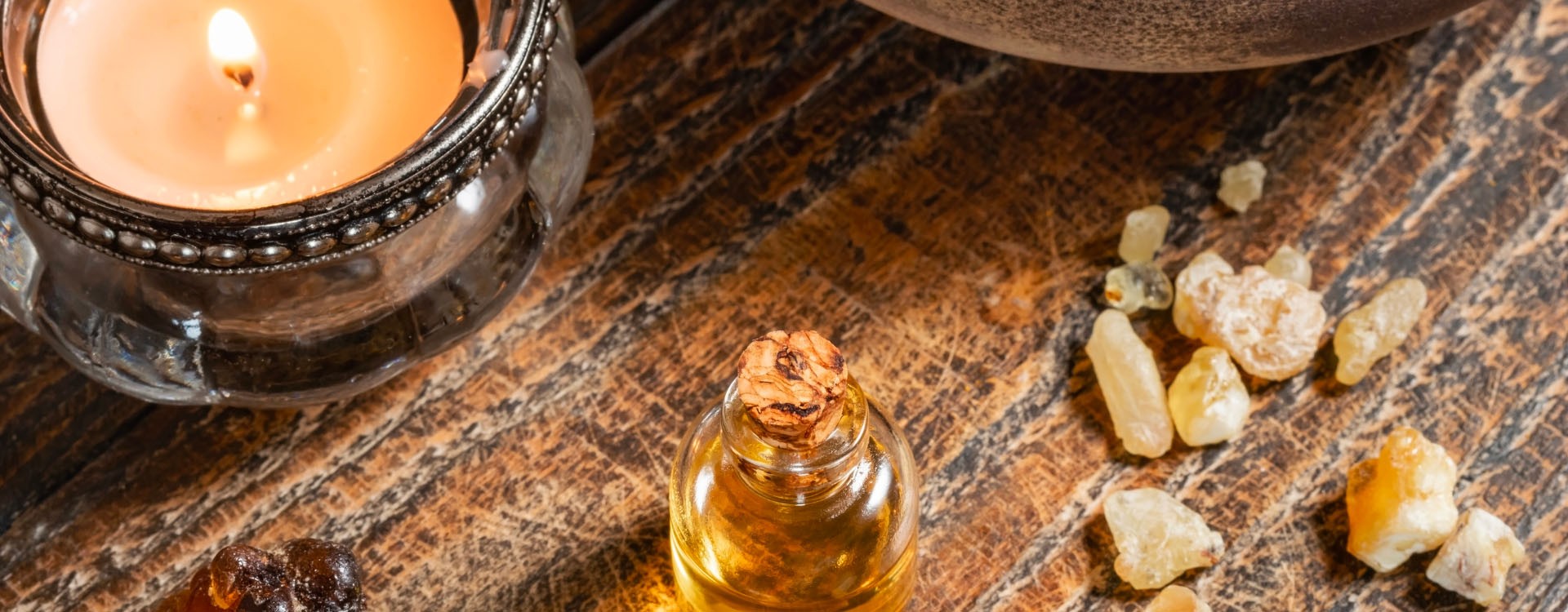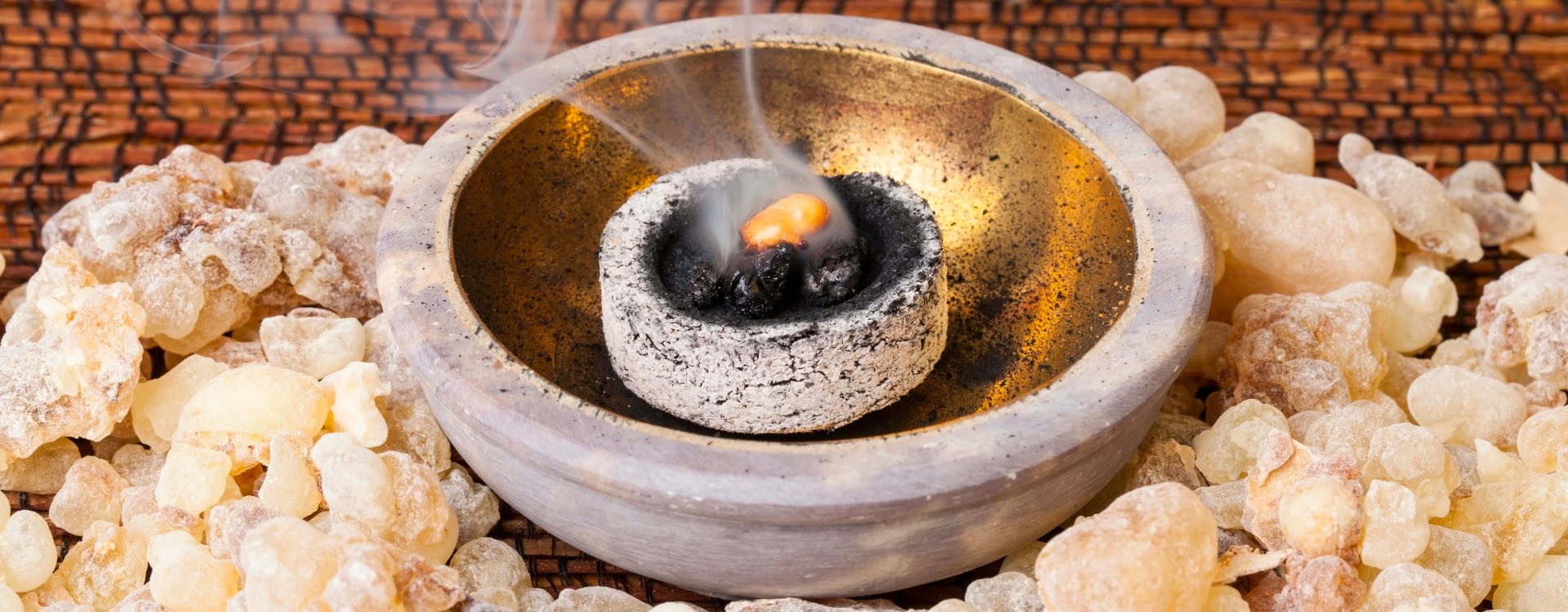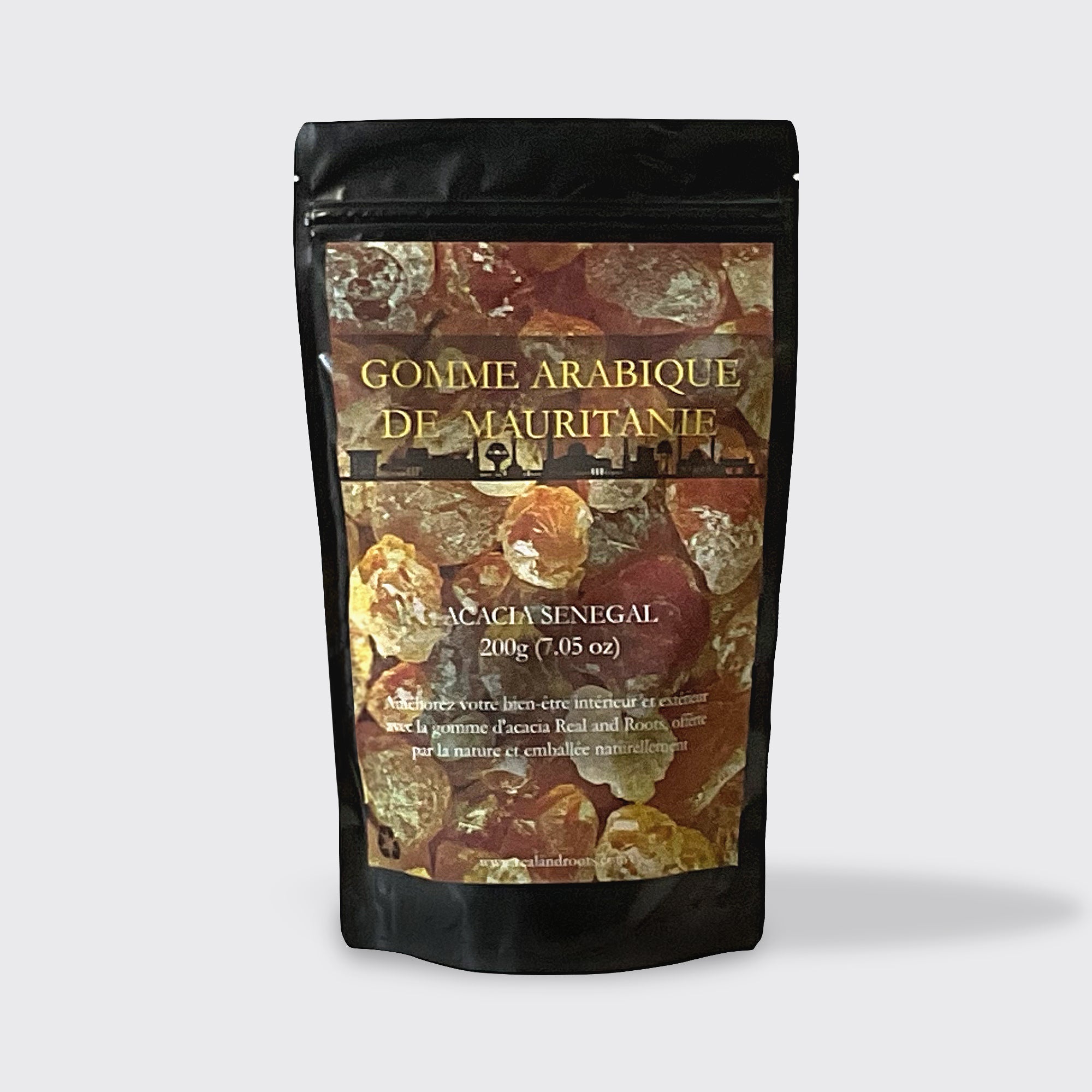Olibanum essential oil: an essence with a thousand virtues

Origin and production
Olibanum essential oil has its origins in a fascinating natural source. Its harvesting and extraction process, as well as the main producing countries, contribute to its worldwide renown.
Olibanum, also known as frankincense, is an aromatic resin produced by the Boswellia tree. This precious resin is extracted from the bark of these trees, which grow mainly in the arid regions of the Arabian Peninsula and East Africa. Extreme climatic conditions, characterized by high temperatures and limited rainfall, contribute to the production of this resin by Boswellia trees.
The Olibanum harvesting process is an ancient art. It begins by incising the bark of the Boswellia tree, creating small cuts to allow the resin to flow out. This sap is then left to dry in the sun, forming precious tears or grains of incense resin.
Once harvested, the resin undergoes a complex extraction process to obtain Olibanum essential oil. The most common extraction method is steam distillation. In this procedure, the resin is heated with steam, then the vapors are cooled and condensed to obtain the pure essential oil.
Olibanum is produced in various parts of the world, but certain countries stand out as the main producers:
- Oman: The Sultanate of Oman is famous for its high-quality Olibanum, particularly renowned for its bewitching fragrance and purity. The Dhofar region of Oman is one of the most important Olibanum-producing areas in the world.
- Somalia: Somalia is another major producer of Olibanum, with a long tradition of harvesting this precious resin. Somali varieties are prized for their quality and distinctive aroma.
- Ethiopia: Ethiopia is an emerging producer of high-quality Olibanum. Boswellia trees thrive in mountainous regions, providing a sought-after resin.
- Yemen: Yemen is also renowned for its quality Olibanum, mainly grown in the mountainous region of Dhale and the Hadramaout mountains.
The geographical origin of Olibanum can have a significant impact on its fragrance and properties, making it a precious product sought after the world over. This geographical diversity contributes to the richness and complexity of Olibanum essential oil.
Traditional applications
Olibanum essential oil has a long history of use in a variety of traditional fields, reflecting its versatility and benefits. Its historical applications include medicinal, spiritual and aromatic uses.
In traditional medicine, Olibanum essential oil has been used to treat a wide range of health problems. Ancient civilizations used it to relieve ailments such as joint, muscle and inflammatory pain. The anti-inflammatory and analgesic properties of boswellic acids were particularly appreciated for soothing aches and pains.
Olibanum has played a central role in many spiritual and religious traditions around the world. Its mystical fragrance and association with purification have led to its use in rituals of meditation, prayer and spiritual connection.Olibanum incense has been burned to create a sacred atmosphere, ward off negative energies and encourage inner contemplation.
In aromatherapy, Olibanum essential oil has been used for its relaxing and soothing properties. It is reputed to promote relaxation, reduce stress and create a serene atmosphere. Moreover, its use goes back centuries in practices such as aromatherapy and perfume creation, where its complex, bewitching fragrance was highly prized.
These traditional uses of Olibanum essential oil testify to its historic value as a versatile resource for improving health, fostering spirituality and uplifting the senses.
Health benefits
Olibanum essential oil offers a wide range of health benefits, touching on different aspects of human well-being.
Olibanum has long been recognized for its positive effects on mental and emotional health. Its soothing scent has the ability to reduce stress, anxiety and feelings of nervousness. Inhaling its aroma can stimulate the production of endorphins, helping to improve mood and reduce symptoms of mild depression. In meditation and relaxation, it promotes concentration and creates a peaceful atmosphere, ideal for relaxation.
In the field of alternative medicine,Olibanum essential oil is used to treat a variety of ailments. The oil's key compounds, such as boswellic acids, have anti-inflammatory and analgesic properties. It is often used to relieve joint and muscle pain, as well as to treat skin problems such as acne. Some people also see it as a support for boosting the immune system.
Olibanum is rich in boswellic acids, natural compounds that have demonstrated anti-inflammatory and antioxidant properties. These properties make Olibanum essential oil a potential choice for alleviating inflammation and protecting cells against oxidative damage. It is sometimes used as a dietary supplement to promote a healthy inflammatory response in the body.
In summary, Olibanum essential oil offers a multitude of health benefits, from improving mental and emotional health to its use in alternative medicine due to its anti-inflammatory and antioxidant properties. Its age-old virtues continue to fascinate and help people around the world maintain their overall well-being. At Real and Roots, we guarantee you quality Olibanum essential oil, produced with respect for tradition.
Contemporary applications
Olibanum essential oil has proved invaluable in the modern context, finding its place in a variety of fields of application.
Contemporary aromatherapy has embraced Olibanum essential oil for its soothing properties and enchanting fragrance. It is commonly used to promote relaxation, reduce stress and improve sleep quality. Aromatherapy practitioners incorporate it into their sessions to help clients achieve mental and emotional balance.
Olibanum is a valuable ingredient in the skin care and beauty products industry. Its anti-inflammatory and antioxidant properties make it a popular choice for products designed to combat aging skin, skin irritation and acne. Many serums, creams and lotions contain it to help regenerate and revitalize the skin.
Although less common than other herbs and spices,Olibanum essential oil has found its place in contemporary cooking, particularly in the field of molecular cuisine. Its unique aroma and subtle notes of lemon and resin can be used to perfume exotic dishes, desserts or even drinks. However, it should be used with care and sparingly, as its taste is powerful.
In short, Olibanum essential oil continues to gain in popularity in the modern world, whether in aromatherapy, beauty products or even innovative gastronomic experiences. Its versatile potential never ceases to surprise and inspire, opening up new application perspectives for this essence of a thousand virtues.



